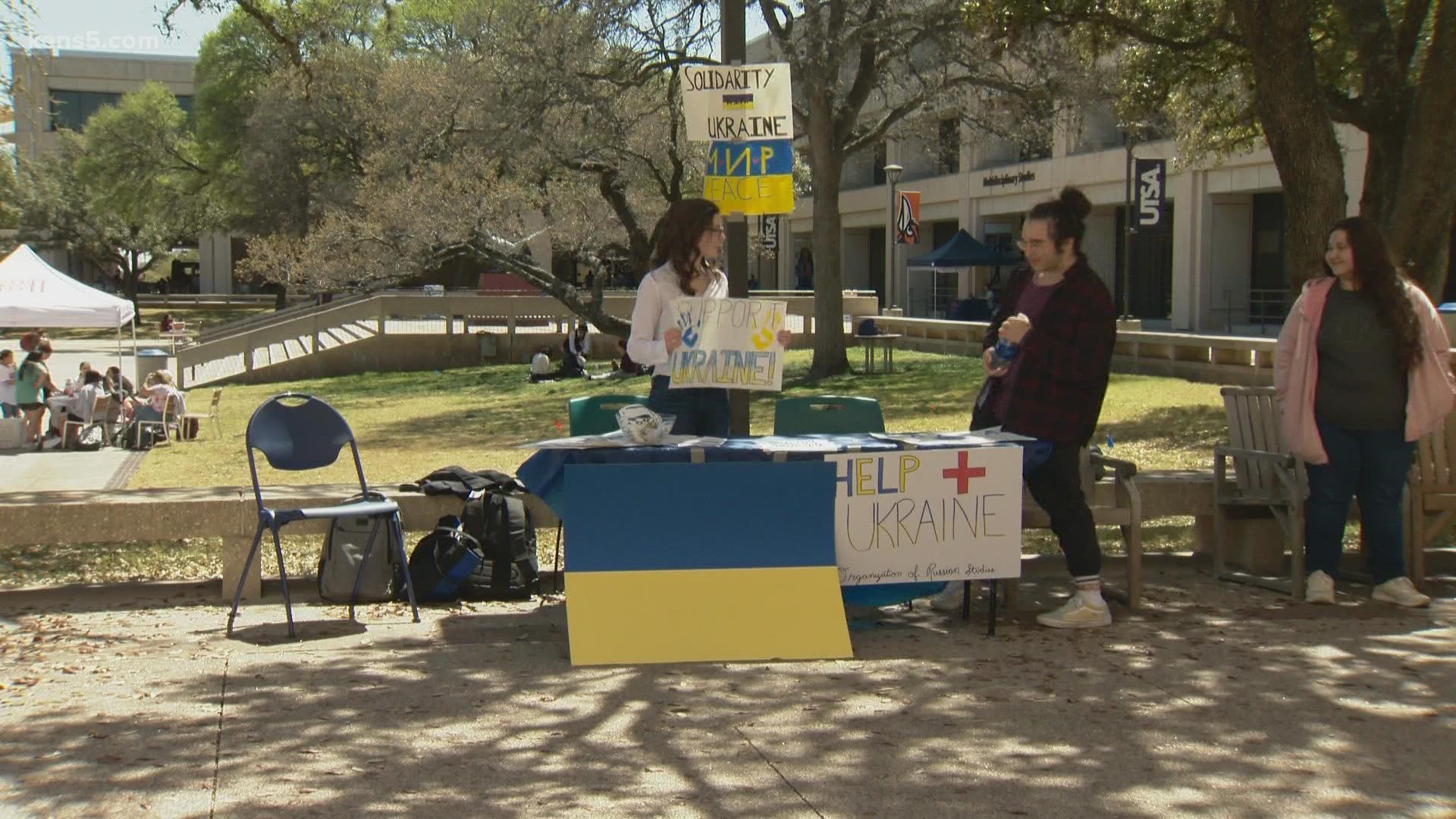SAN ANTONIO — Ben Bremner says it's "disheartening or depressing" to see friends and family duped by misinformation.
"There are these Russian organizations and their whole job is to misinform you," the third-year student at the University of Texas at San Antonio said. "A lot of these people are professionals at lying."
Too often, those professionals successfully use misinformation to sow discord among peers in the United States. Russian 'troll factories' are partly to blame for skepticism about COVID-19 vaccines and election results.
But Bremner says he's motivated.
"It's kind of fuel to the fire," he said. "You directly have an incentive to continue your studies and figure out the best way to educate people."
Bremner is a member of the school's Organization for Russian Studies.
On Thursday, he and a few classmates solicited donations for the Ukrainian Red Cross and distributed pamphlets on the war.
Each flier offered an historical explanation for the conflict, citing objective information from Reuters, the Council on Foreign Relations, and Radio Free Europe.
The handouts feature background information on the 2014 Maidan Revolution in Ukraine, Russia's invasion of the Crimean peninsula, and the refugee crisis unfolding today.
"It's really important for us to explain it's not the Russian people who are at fault," said Rachel Pharr, another club member. "It's the Russian government that's at fault."
"It's really awful - what's going on - but still really important to stay informed about what's going on," she added. "The rest of the world is looking, so how we respond to this and how our generation responds to this is important."
Some of the club members crafted the pamphlets' language using strategies they learned in one of UTSA's newest courses: Russia in the Fake News.
"It's a useful skill to be able to read and dissect media," said professor Andrew Chapman, who co-teaches the seminar and directs UTSA's Russian program.
He's not just trying to teach students to distinguish fact from fiction, he added.
"We're trying to ask the questions about why particular narratives are being told," Chapman said. "We need to have the full picture to understand the war right now."
Sometimes, the class analyzes movies. Other days, they practice Russian conversation.
Chapman likened elements of the course to an in-depth literature class, where students analyze each line of a selected text. Propaganda writers might use passive verbs to remove the aggressor from a headline, for example.
"'Ukraine was bombed' versus 'Russia bombed Ukraine,'" Chapman said.
The course is part of UTSA's classroom to career initiative, designed to prepare students for work after graduation.
"The skills to read and analyze media in Russian and in English are really sought after by our government in service of foreign policy, foreign affairs, and so forth," Chapman said.
"It's preparing me to operate a bit more effectively in that social scene," said Bremner, who wants to do humanitarian work after school.

